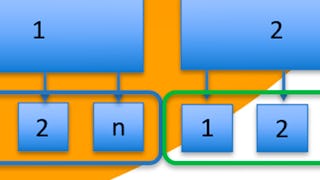Filter by
SubjectRequired
LanguageRequired
The language used throughout the course, in both instruction and assessments.
Learning ProductRequired
LevelRequired
DurationRequired
SkillsRequired
SubtitlesRequired
EducatorRequired
Results for "learning theories"

University of London
Skills you'll gain: Human Computer Interaction, Virtual Reality, Game Design, Full-Stack Web Development, Agile Software Development, Animations, Data Ethics, Computer Security, Mobile Development, Git (Version Control System), Event-Driven Programming, Web Applications, Data Science, Natural Language Processing, Unsupervised Learning, Combinatorics, Database Design, Web Development, Generative AI, Usability Testing
 Status: Preview
Status: PreviewStanford University
Skills you'll gain: Game Theory, Strategic Decision-Making, Mathematical Modeling, Graph Theory, Bayesian Statistics, Behavioral Economics, Probability, Economics, Markov Model, Problem Solving, Algorithms
 Status: Preview
Status: PreviewStanford University
Skills you'll gain: Game Theory, Bidding, Social Sciences, Resource Allocation, Political Sciences, Economics, Behavioral Economics, Mathematical Theory & Analysis, Probability & Statistics
 Status: Preview
Status: PreviewErasmus University Rotterdam
Skills you'll gain: R Programming, Statistical Modeling, Statistical Methods, Regression Analysis, Statistical Analysis, Advanced Analytics, Data Modeling
Searches related to learning theories
In summary, here are 4 of our most popular learning theories courses
- Bachelor of Science in Computer Science: University of London
- Game Theory: Stanford University
- Game Theory II: Advanced Applications: Stanford University
- Multilevel Modeling: Erasmus University Rotterdam










